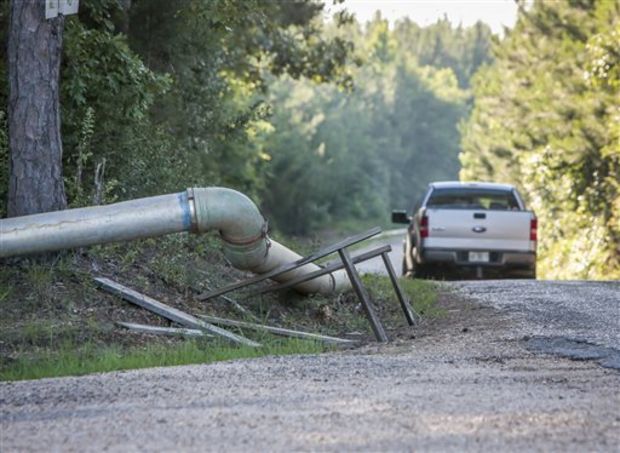

MCCOMB, Mississippi — A second oil company is stopping drilling in the Tuscaloosa Marine Shale because of falling oil prices.
Comstock Resources, based in Frisco, Texas, said Thursday that it would stop drilling in the oil region, which straddles the state line between southwest Mississippi and Louisiana’s Florida Parishes.
“Comstock has released its rig in the Tuscaloosa Marine shale and will postpone its drilling activity there until oil prices improve,” the company said in a news release discussing its 2015 exploration plans.
Company officials said they also will shut down four rigs drilling for oil in the Eagle Ford shale formation in Texas, but will continue natural gas operations there.
Officials say the company will move two rigs from the Eagle Ford to the Haynesville Shale region in north Louisiana in early 2015 to seek natural gas, citing better market conditions for gas.
Halcón Resources said in November that it was pulling out of the Tuscaloosa Marine Shale for the time being, instead focusing on scaled-down drilling program in Texas and North Dakota.
“It is currently a relatively high-cost play and with currently low crude prices we will not be devoting a significant portion of our resources to TMS in the near term,” Halcón Chairman and CEO Floyd Wilson told investors on a Nov. 11 conference call.
That’s despite $150 million that Apollo Global Management, a New York private equity group, agreed to invest in June to spur Halcón’s work.
Exploration in the Tuscaloosa Marine Shale had been building up because of high oil prices. But the region is one of the most expensive for drilling, with costs running above $10 million for one well. That’s in part because contracting costs are high, and in part because companies have been drilling one well at a time, instead of drilling multiple wells from one site.
Encana Corp., Goodrich Petroleum Corp., VirTex Operating Co. and Sanchez Oil and Gas Corp. remain active in the TMS.
Friday, Helis Oil & Gas won a permit to drill a well in Louisiana’s St. Tammany Parish, a region considered distant from the richest prospects. That permit was hotly opposed by residents of the suburban area.
Goodrich, one of the largest operators, said earlier this month that efforts to drive down costs, state severance tax breaks and the high quality of oil produced in the Tuscaloosa Marine Shale “allow for the continued economic development of the play.” It said it would spend $150 million to $200 million on drilling in the region in 2015.
The region is a relatively small investment for the much larger Encana, whose activity has remained relatively steady. Encana said last week it would invest $350 million to $400 million in three regions, including the Tuscaloosa Marine Shale.
Sanchez, for its part, said Dec. 10 that it “remains positive” about its drilling plans.


